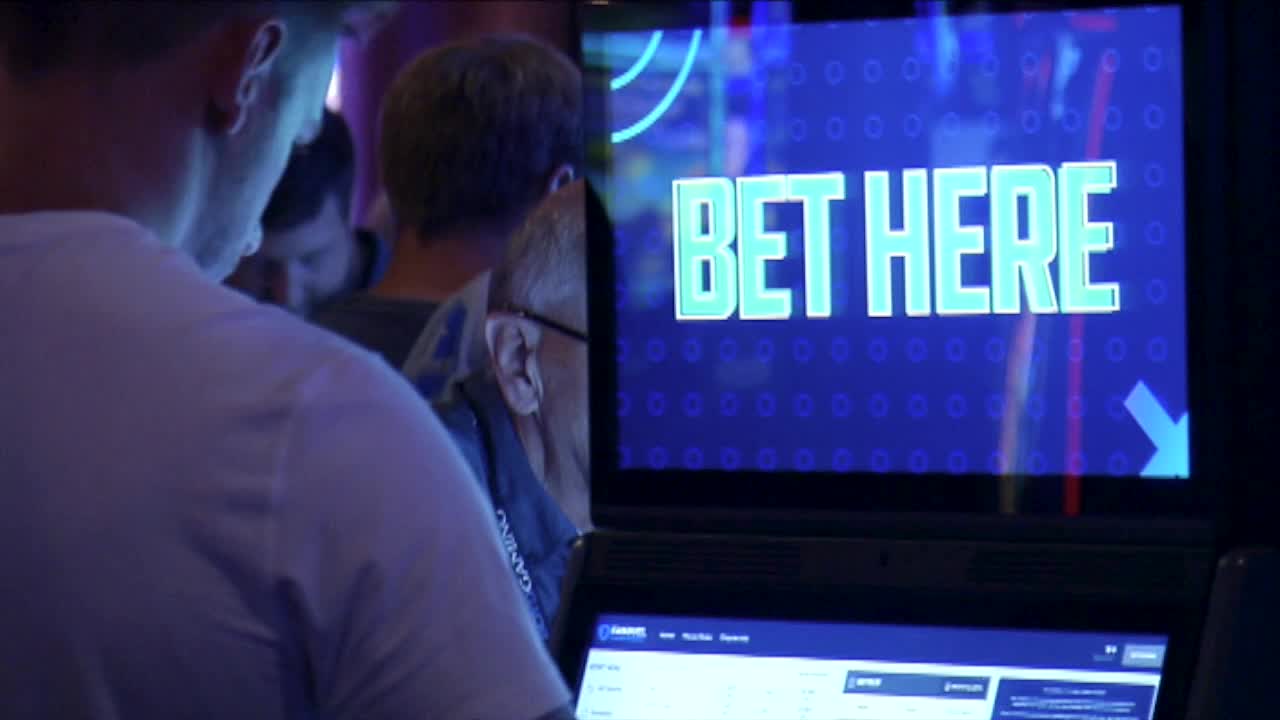Minnesota senator unveils new plan to legalize sports betting

Sports betting revenues across the country have soared in recent years. The trend has spurred new efforts by state lawmakers to legalize it in Minnesota, but those have fallen short in the past couple of years.
Wednesday, a Minnesota senator unveiled a new plan, signaling his intent to try to get it across the finish line this year.
Sen. Jeremy Miller, R-Winona, announced his proposal on Wednesday, saying he used feedback from constituents, other lawmakers and stakeholders to tweak last year’s bill, which he also introduced.
This version, which Miller says he’ll formally introduce on Feb. 12, the first day of the new legislative session, includes:
- The ability for all 11 Minnesota tribal nations to offer retail and mobile sports betting, as well as options for licensees to operate at horse racing tracks and professional sports stadiums.
- A 15% tax rate on sports betting revenue.
Lawmakers have struggled over whether to give Minnesota Native American tribes exclusive rights to in-person and mobile betting, but with revenues soaring and polls showing that a majority of Minnesotans support legalized sports betting, there should be motivation to find a solution.
Polls show a majority of Minnesotans favor legal sports wager since the 2018 U.S. Supreme Court ruling struck down a federal law banning sports betting in most states.
Sports wagering surpassed $100 billion for the first time in 2023, according to SportsHandle, up by around 7% from the year before. SportsHandle says more than $291 billion has been wagered in the U.S. since the U.S. Supreme Court’s 2018 ruling that paved the way for sports gambling.
“Minnesota continues to miss out on what is now a $100 billion industry,” Miller said in announcing his bill. “So far, 38 other states, plus Puerto Rico and Washington, DC, have already legalized sports betting. This updated proposal combines ideas from my original Minnesota Sports Betting Act along with provisions from other sports betting bills that were introduced last session. It also includes ideas brought forward by constituents and stakeholders. The goal of this proposal is to bring folks together to work toward a bipartisan solution to legalize sports betting in Minnesota. I strongly believe we can get it done this year.”
The bill, as written, calls for the state’s revenues from sports betting to be used as follows:
- 50% for making charitable gaming tax relief payments to local charities.
- 25% for grants to Minnesota Sports and Events to attract major events to the state.
- 15% to the Minnesota Racing Commission for grants to licensed racetracks.
- 4% for gambling treatment programs.
- 4% for education grants to support organizations that run youth sports programs.
- 2% to promote participation and integrity in youth sports.
Additionally, Miller says the bill would restore free plays and bonus games on electronic pull tabs, which currently won’t be allowed starting in 2025 under changes made last year by state lawmakers. The changes were made because Native American casino owners and some lawmakers argued that they made e-pull tabs resemble slot machines, something only tribal casinos are allowed to operate in the state. However, charities have said they’re projecting at least a 5% drop in e-pull tab revenues when those changes take place.
Miller says restoring some of those options would ease concerns from charities, although it’s likely to get pushback from tribal leaders.
He also noted that all of Minnesota’s bordering states have already legalized sports betting, and Minnesotans must either cross state lines or use illegal workarounds to bet on games. Miller argued that legalizing betting would provide a safe, structured and regulated manner that would benefit Minnesotans and the state.
5 EYEWITNESS NEWS reached out to the Minnesota Indian Gaming Association for comment on the bill but hasn’t yet heard back. It’s unclear if the association or DFL lawmakers, who control the Minnesota House of Representatives and Senate, will support the bill.